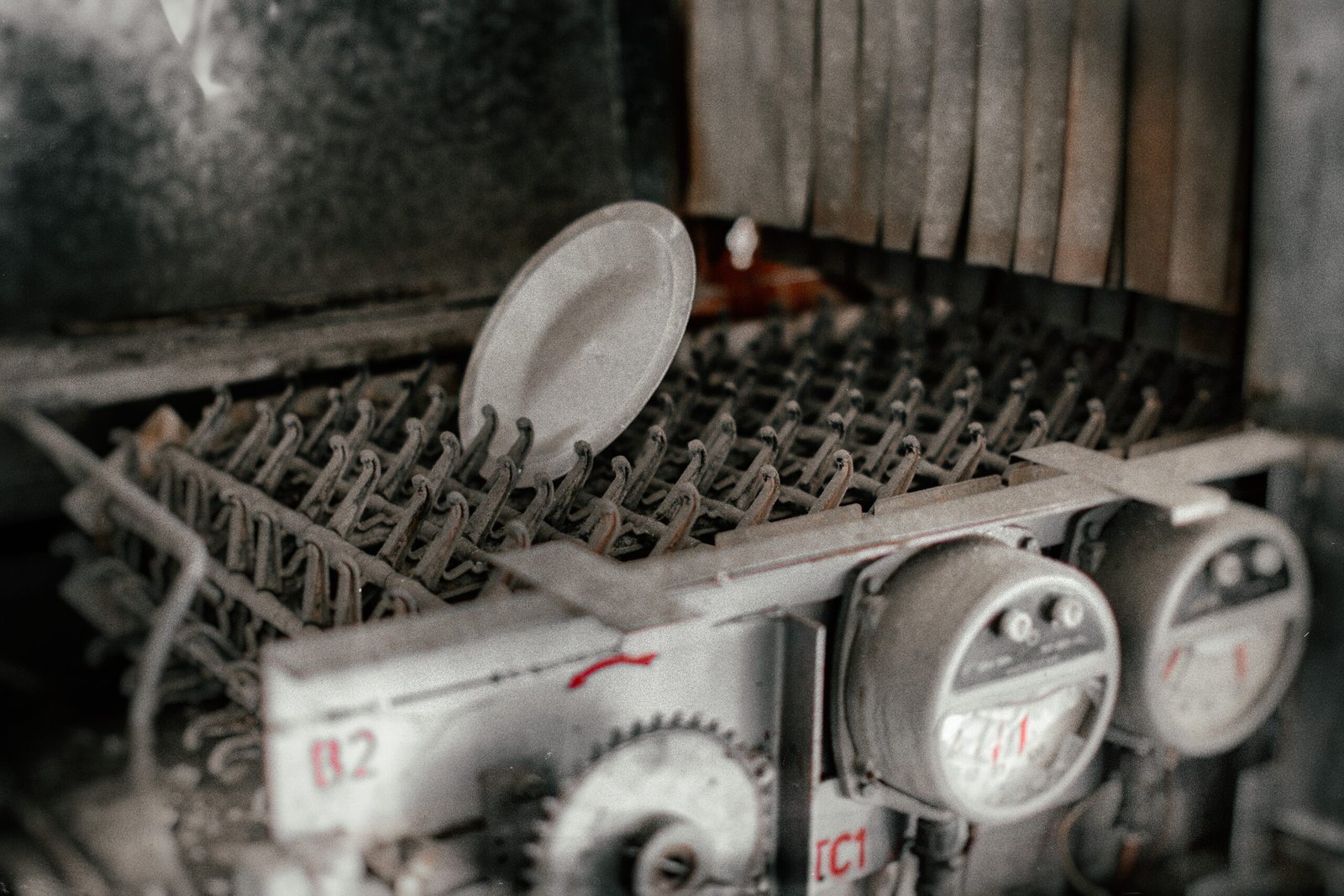So, you’ve found yourself with a pile of steel utensils that need a good cleaning, and you’re wondering if it’s safe to toss them in the dishwasher. Well, fear not, my friend, for I am here to shed light on this kitchen dilemma. In this article, we’ll explore the question of whether or not you can wash steel utensils in the dishwasher, providing you with all the information you need to make an informed decision. So, grab your favorite beverage and get ready to learn all about the do’s and don’ts of cleaning your steel utensils in the dishwasher.
Can We Wash Steel Utensils in Dishwasher?
Introduction
Have you ever wondered whether it’s safe to wash your steel utensils in a dishwasher? With the convenience and efficiency that dishwashers provide, it’s natural to be curious about expanding their use to include your steel cookware and flatware. In this article, we will explore the possibilities of washing steel utensils in a dishwasher, the advantages it offers, the factors to consider, and the proper methods to ensure the longevity and cleanliness of your steel utensils.
Understanding Dishwashers
Before delving into whether it’s suitable to wash steel utensils in a dishwasher, let’s have a quick understanding of how dishwashers work. Dishwashers are designed to clean, sanitize, and dry dishes by using a combination of hot water, detergent, and various wash cycles. These appliances are equipped with mechanical sprayers, racks, and compartments to accommodate different types of utensils, including plates, glasses, and silverware. The external casing of dishwashers is typically made of stainless steel, which can sometimes lead to confusion about washing steel utensils in them.
Advantages of Using a Dishwasher for Cleaning Steel Utensils
Using a dishwasher to clean your steel utensils offers several advantages. Firstly, dishwashers can provide a more thorough and consistent cleaning compared to handwashing. The powerful jets of water and the high temperature during the wash cycle can effectively remove stubborn food particles and grease from steel utensils. Additionally, the sanitizing rinse cycle eliminates bacteria and other harmful microorganisms, ensuring that your steel utensils are hygienically clean. Moreover, dishwashers often have dedicated compartments or racks specifically designed for different utensils, making it easier to load and unload steel cookware and flatware.
Factors to Consider Before Washing Steel Utensils in a Dishwasher
While dishwashers are generally safe for cleaning steel utensils, it’s important to consider a few factors before loading them into the dishwasher. Firstly, check the manufacturer’s instructions for your steel utensils. Some steel utensils may have special coating or finishes that can be damaged by the dishwasher’s harsh detergents and hot water. It’s essential to ensure that your steel utensils are dishwasher-safe before proceeding. Moreover, consider the quality and age of your utensils. Older or worn-out utensils may be more susceptible to damage in the dishwasher. Finally, the dishwasher itself should be in good working condition and properly maintained to avoid any mishaps or malfunctions.
Type of Steel Utensils Suitable for Dishwasher Cleaning
Not all steel utensils are created equal when it comes to dishwasher cleaning. Stainless steel utensils are generally safe for dishwasher use, as they are resilient, durable, and resistant to corrosion. However, avoid washing steel utensils with wooden or plastic handles, as the heat and moisture in the dishwasher can cause damage to these materials. Additionally, delicate or intricate steel utensils, such as ornate silverware or delicate chef’s knives, may be better suited for handwashing to maintain their quality and intricate designs.
Preparation Before Loading Steel Utensils in a Dishwasher
To ensure optimal cleaning and prevent any damage to your steel utensils, a few preparations are necessary before loading them into the dishwasher. Firstly, scrape off any excess food particles or debris from the utensils before placing them in the dishwasher. This will prevent clogging in the dishwasher’s drainage system and improve the overall cleaning performance. If any utensils have burnt-on food or stains, pre-soaking them in warm soapy water can help loosen the grime, making it easier for the dishwasher to clean them effectively. Additionally, avoid overcrowding the utensils in the dishwasher, as this can hinder the water and detergent from reaching all the surfaces.
Dishwashing Cycle for Steel Utensils
When it comes to washing steel utensils in a dishwasher, selecting the appropriate cycle is crucial. Most dishwashers offer multiple wash cycle options, such as normal, heavy-duty, and delicate. For steel utensils, the normal or heavy-duty cycle is usually sufficient to remove stains and sanitize them. However, if you have particularly greasy or heavily soiled steel cookware, opting for the heavy-duty cycle can provide a more thorough cleaning. It’s important to note that using the light or delicate cycle may not effectively clean steel utensils, especially if they have stubborn stains or food residue.
Drying and Maintenance of Steel Utensils After Dishwashing
After the dishwasher completes the wash cycle and sanitizing rinse, it’s important to properly dry and maintain your steel utensils. Dishwashers typically have a drying cycle that uses heated air or fan-assisted drying to remove moisture. However, this drying process might not be suitable for all types of steel utensils, especially those with intricate designs or non-stick coatings. To ensure thorough drying, it’s recommended to leave the utensils in the dishwasher for a short period after the cycle ends, allowing any remaining moisture to evaporate. Once dry, promptly remove your steel utensils from the dishwasher to prevent any potential water spots or discoloration.
Common Mistakes to Avoid When Washing Steel Utensils in a Dishwasher
To avoid any mishaps or damage to your steel utensils when washing them in a dishwasher, it’s essential to steer clear of common mistakes. Firstly, avoid using harsh or abrasive detergents that can corrode or scratch the steel surface. Opt for mild detergents specifically formulated for dishwasher use. Additionally, refrain from using bleach or bleach-based cleaners, as they can cause discoloration and compromise the integrity of your steel utensils. It’s also important to avoid overcrowding the dishwasher, as this can prevent proper water circulation and hinder the cleaning process. Finally, always check your utensils after the dishwasher cycle for any signs of damage or deterioration, and promptly address any issues to ensure the longevity of your steel utensils.
Alternative Methods for Cleaning Steel Utensils
If you prefer not to use a dishwasher or have steel utensils that are not dishwasher-safe, there are alternative methods for cleaning them effectively. Handwashing with warm soapy water and a soft scrub brush or sponge is a safe and reliable option. For particularly stubborn stains or burnt-on food, soaking the utensils in a mixture of warm water and baking soda can help loosen the grime before scrubbing. Additionally, there are specialized stainless steel cleaners available in the market that can effectively remove stains and restore the shine of your steel utensils. Be sure to follow the instructions provided by the cleaner manufacturer for best results.
In conclusion, washing steel utensils in a dishwasher can be a convenient and efficient way to clean and sanitize them. However, it’s important to consider the factors mentioned, ensure the suitability of your steel utensils for dishwasher use, and take the necessary precautions for optimal cleaning and maintenance. Whether you choose to use a dishwasher or opt for alternative methods, keeping your steel utensils clean and well-maintained will ensure their longevity and continued use in your kitchen for years to come.




